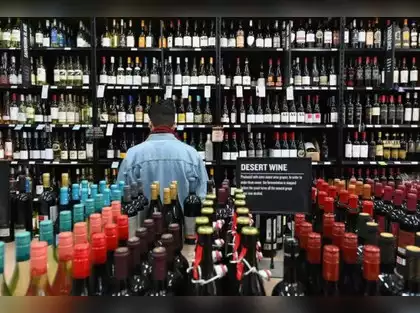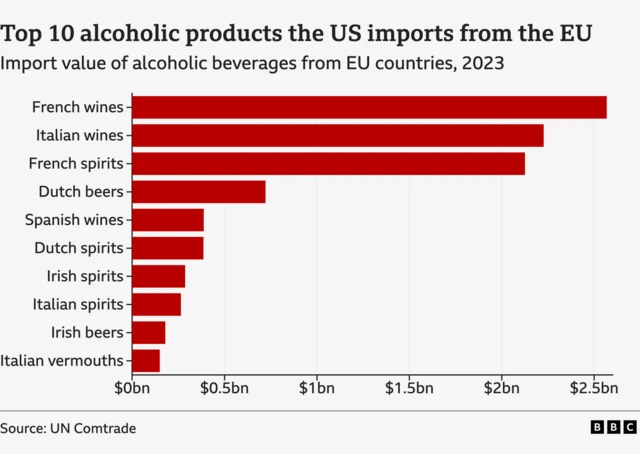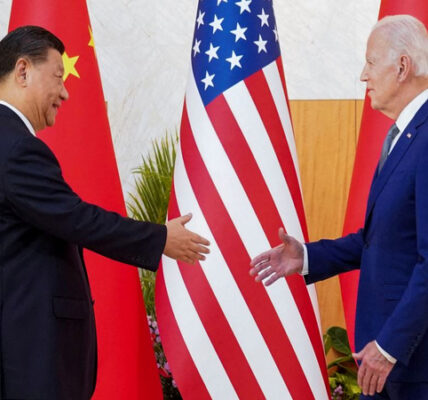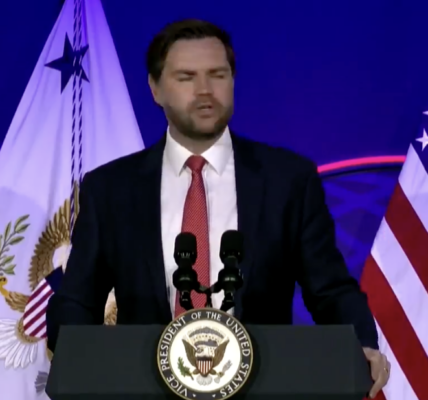
Trump threatens 200% tariff on all alcohol imported into the US from the European Union.
After US President Donald Trump threatened a 200% tariff on all alcohol imported into the US from the European Union (EU), the EU also threatened to impose a 50% tax on whiskey imports from the US in retaliation for Trump’s tariffs on all steel and aluminum imports to the US.
The US president demanded that the “nasty” tariff on US whiskey be lifted immediately and described the EU as “hostile and abusive” and “formed for the sole purpose of taking advantage of the United States.”
A European Commission spokesman said “Calls are being prepared” for the US and the EU to discuss the issue. Ignacio Sánchez Recarte, the organization’s secretary-general, warned that if Trump carried out his threats, the market would crash, and thousands of jobs would be lost.
He begged the two sides to “keep wine out of this fight,” saying, “There is no alternative to sell all this wine.”
The most recent conflict followed Wednesday’s new US steel and aluminum tariffs. The tariffs imposed a 25% blanket duty on metals imports and terminated duty exemptions previously granted by the US for shipments from certain nations, including the EU and Canada.

Increase in alcohol tariffs by 200%.
Among America’s largest trading partners, Canada and Europe, criticized the new taxes as unwarranted and retaliated with tariffs on various US goods. The EU’s actions are scheduled to take effect on April 1. The dispute reappeared when Trump declared steel and aluminum tariffs during his first term.
A 25% tax on whiskey produced in the US was one of the tariffs imposed by the EU in retaliation.
According to the US Distilled Spirits Council, whiskey sales to the EU decreased by 20% following the incident, from roughly $552 million in 2018 to $440 million in 2021. Trump, in turn
After the two parties agreed to exempt a specific quantity of European metals from the duties, the tariffs were removed after Trump left office. However, Trump has shown little interest in striking a deal regarding aluminum and steel.
On social media, he posted, in all capital letters, “If this Tariff is not removed immediately, the US will shortly place a 200% Tariff on all wines, champagnes, and alcoholic products coming out of France and other EU-represented countries.”
“Our livelihoods are in grave danger.”
Since few consumer products are as iconic as Tennessee whiskey or French Bordeaux, targeting wine and whiskey is symbolic. Drinks are not as valuable as some of the other goods that are subject to tariffs.
However, Mary Taylor, a US-based importer of European wines, claimed that the actions would have a disastrous effect on her company and sector, affecting distributors, eateries, and bars all over the United States.
She remarked, “It looks like a big, giant threat to our livelihoods.”

Trump threatens a 200% tariff on alcohol from the EU.
On Thursday, US stocks dropped once more. The S&P 500 experienced a correction when it fell by almost 1.4%, or about 10%, from its most recent peak. The Nasdaq fell nearly 2%, and the Dow fell 1.3%.
Germany’s Dax ended roughly 0.5% lower in Europe, while London’s FTSE 100 remained unchanged.
The Cac 40 dropped 0.6% in Paris as the stocks of significant spirits companies declined, with Hennessy cognac manufacturer LVMH falling 1.1% and Pernod Ricard down 4%.
In Thursday’s interviews with US business media, White House officials blamed the EU for intensifying the conflict.
Why are Europeans disparaging Harley-Davidson motorcycles and Kentucky bourbon? Howard Lutnick, the commerce secretary, told Bloomberg Television that the exchange was “off the topic” and disrespectful. Despite worries that the conflict could worsen, Treasury Secretary Scott Bessent cautioned that a trade war would probably hurt the EU’s economy more than the US’s.
“One or two items, with one trading bloc – I’m not sure why that’s a big deal for the markets,” he stated. Trump has so far demonstrated little patience for nations to retaliate against him for his imposed tariffs.
He threatened to impose a 50% tariff on Canada’s steel and aluminum earlier this week after the Canadian province of Ontario reacted to new tariffs by imposing a surcharge on electricity exports to the United States. After Ontario agreed to suspend the charges, he backed off from that threat.
Stephen Moore, an economist with the Heritage Foundation and a former Trump adviser, stated that he believed the EU would need to compromise to diffuse the situation, pointing out that Trump had repeatedly expressed concerns regarding agricultural product regulations.
“There is no doubt a deal will be reached,” he stated. “There will eventually be a negotiated settlement; it just depends on whether a deal is reached in a day, a week, a month, or six months.”




